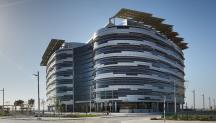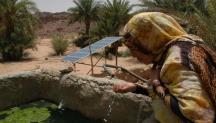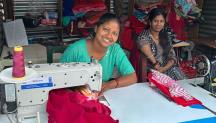

Progress on Basic Energy Access Reverses for First Time in a Decade
Newsletter
Joint News Release
Global energy access gap worsens as population growth outpaces new connections: 685 million people living without electricity access in 2022, 2.1 billion people continue to rely on damaging cooking fuels globally.
Washington, New York, United States of America / Geneva, Switzerland / Abu Dhabi, United Arab Emirates, 12 June 2024 – A new report by the International Energy Agency (IEA), the International Renewable Energy Agency (IRENA), the United Nations Statistics Division (UNSD), the World Bank, and the World Health Organization (WHO), released today, finds that the world remains off course to achieve the Sustainable Development Goal (SDG) 7 for energy by 2030.
SDG 7 is to ensure access to affordable, reliable, sustainable and modern energy. The goal includes reaching universal access to electricity and clean cooking, doubling historic levels of efficiency improvements, and substantially increasing the share of renewables in the global energy mix. Attaining this goal will have a deep impact on people’s health and well-being, helping to protect them from environmental and social risks such as air pollution, and expanding access to primary health care and services.
The 2024 edition of Tracking SDG 7: The Energy Progress Report warns that current efforts are not enough to achieve the SDG 7 on time. There has been some progress on specific elements of the SDG 7 agenda – for example, the increased rate of renewables deployment in the power sector – but progress is insufficient to reach the targets set forth in the SDGs.
The latest report confirms that the number of people without access to electricity increased for the first time in over a decade, as population grew – mostly in Sub-Saharan Africa – at a higher rate than that of new electricity connections, leaving 685 million people without electricity in 2022, 10 million more than in 2021. A combination of factors contributed to this including the global energy crisis, inflation, growing debt distress in many low-income countries, and increased geopolitical tensions. However, promising trends in the rollout of decentralised energy solutions, largely based on renewable energy, are helping accelerate progress, particularly in rural areas where eight in ten people without access live today.
Meanwhile, 2.1 billion people still live without access to clean cooking fuels and technologies, with the number remaining largely flat last year. This carries with it huge implications for health, gender equality, and the environment, contributing to 3.2 million premature deaths each year. Renewed political momentum within the context of G7, G20, and new financial commitments made at the Summit on Clean Cooking in Africa are buoying prospects for stronger progress later this decade. Still, efforts remain insufficient to reach universal access to electricity or clean cooking by 2030.
Other parts of the SDG 7 agenda have fared better recently. Renewable energy has seen robust growth over the past two years, and energy efficiency improvements is gradually improving after a drop-off during the pandemic, albeit still not enough to meet the SDG 7 target. New global targets pledged by over 130 countries in the UAE Consensus reinforce the objectives of SDG 7 by aiming to triple renewable generating capacity and double the rate of energy efficiency. Immediate concrete actions are required to fulfil these targets, especially in addressing the large disparity in clean energy investment, of which 80% remains concentrated in just 25 countries in 2022.
Key findings of the report:
- 2022 saw a reversal in progress, with the number of people living without electricity growing for the first time in over a decade. Today, 685 million people live without access – 10 million more than in 2021. In 2022, 570 million people in sub-Saharan Africa are living without electricity, accounting for more than 80% of the global population without access. The access deficit in the region has seen an uptick relative to 2010 levels.
- The world remains off track to achieve universal access to clean cooking by 2030. Up to 2.1 billion people still use polluting fuels and technologies for cooking, largely in Sub-Saharan Africa and Asia. The traditional use of biomass also means households spend up to 40 hours a week gathering firewood and cooking, which makes it difficult for women to pursue employment or participate in local decision-making bodies and for children to go to school.
- Household air pollution created by using polluting fuels and technologies for cooking results in 3.2 million premature deaths each year.
- Renewable electricity consumption grew more than 6% year-on-year in 2021, bringing the share of renewables in global electricity consumption to 28.2%.
- Installed renewable energy-generating capacity per capita reached a new record in 2022 at 424 watts per capita globally. However considerable disparities exist. Developed countries (at 1,073 watts per capita) have 3.7 times more capacity installed than developing countries (at 293 watts per capita).
- The rate of energy intensity improvement saw a slight advance of 0.8% in 2021 compared with 0.6% a year earlier. However, this remains well below the long-term average. The slow progress in 2021 occurred amidst the robust economic recovery after the COVID-19 pandemic, which saw the largest annual rise in energy consumption in 50 years. Average annual improvements through 2030 must now accelerate to over 3.8 percent to meet the SDG 7.3 target.
- International public financial flows in support of clean energy in developing countries rebounded in 2022, to USD 15.4 billion, a 25% increase over 2021. However, it is still around half of the 2016 peak of USD 28.5 billion.
- By 2030, under current policies there are still 660 million people lacking electricity access and around 1.8 billion without access to clean cooking technologies and fuels. Progress in energy efficiency rates also lags, reaching just 2.3%, well below the level needed to reach the SDG 7 target.
The report will be presented to top decision-makers at a special launch event on 15 July at the High-Level Political Forum (HLPF) on Sustainable Development, which oversees progress on the SDGs. The authors urge the international community to refocus efforts on providing the required financial, technological and policy support to close the access deficit and ensure that all countries and communities can benefit from accelerated renewable energy deployment and improved energy efficiency.
Francesco La Camera, Director-General, International Renewable Energy Agency said “Year after year, renewables prove to be a leading player in increasing energy and electricity access through steady expansion of renewable power capacity. But distribution disparity remains stark, as reflected in the international public financial flows in support of clean energy. The rebound in the flows does indicate a positive signal, but it is nowhere near the needed amount to achieve SDG7. This should serve as a strong reminder that not only we are racing against time to reach the goal, but we also still fail the most underserved in the world. There must be a strong sense of urgency from the international community to accelerate investments in renewables infrastructures and sustainable technologies, with a focus on the least developed and developing economies.”




